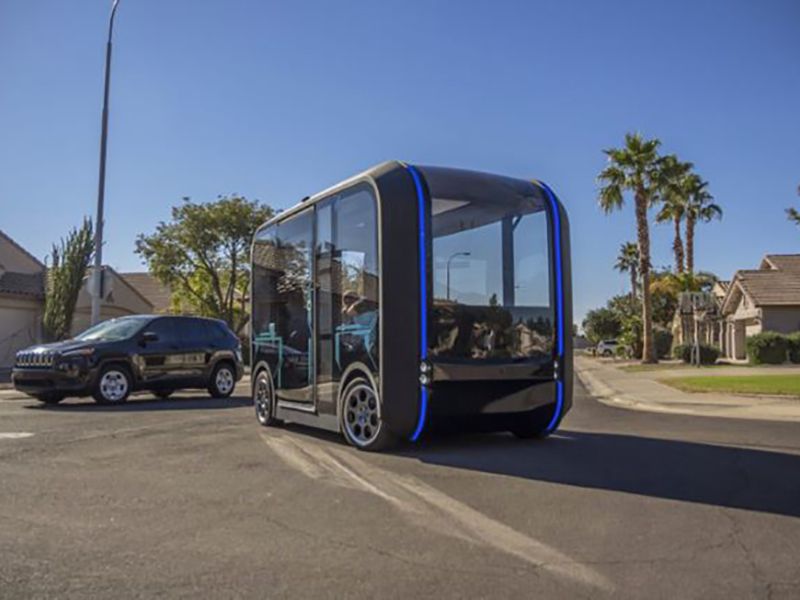
Local Motors will provide its autonomous Olli 2.0 shuttles to mobility operator Beep in an effort to increase the number of autonomous shuttles on roads, the companies said Thursday. The Olli 2.0 electric shuttles will join autonomous shuttle manufacturer Navya’s electric shuttles in Beep’s operational fleet.
“The collaborative agreement is intended to significantly expand the number of AV shuttles on public and private roads, enabling Beep and Local Motors to bring autonomous solutions to more people and enhance the rider experience through continued testing and safe deployments,” the companies said in a statement.
Beep occupies an unusual space in the automated mobility world — it operates shuttle networks but makes neither self-driving technology nor the vehicles themselves. This marks the first time the company has expanded beyond a single shuttle provider.
Beep CEO Joe Moye said in an emailed statement to Automotive News that the agreement will allow both companies to push for legislation in the U.S. and Canada to allow more vehicles without a federal classification to operate on public roads. The companies also will bid on projects in the U.S and Canada to “fill the gaps in existing transportation networks where other mobility providers have found it harder to move forward in the past,” he said.
Moye didn’t specify the number of shuttles it will provide Beep but said the companies plan to deploy “hundreds of vehicles” in the coming years. Moye said Beep will take delivery of the first Olli 2.0 shuttle in August.
Vikrant Aggarwal, president at Local Motors, told Automotive News in an email that locations for vehicle deployment will depend “on various RFPs across the country.”
“There are some great opportunities in Arizona, Florida, Tennessee, Toronto, and we’re looking at ways to potentially bring electric, connected autonomy to national parks,” he said.
Beep already operates in central Florida.
The Olli shuttles are Local Motors’ 3D-printed autonomous shuttles that can “drive in complex on-road transportation environments and other low-speed private campuses,” a statement from both companies said. The shuttle is directed by autonomous-system development company Robotic Research’s AutoDrive autonomous kit.
David Woessner, executive vice president of corporate development and regulatory affairs for Local Motors’ parent company, LM Industries, said in Thursday’s Daily Drive podcast that in 2015, 30 percent of the Olli’s body was made with 3D printing and additives. In 2019, about 70 percent of the Olli 2.0’s body was made with 3D printing or additives. Part counts were reduced by 50 percent from the Olli to the Olli 2.0, and manual production hours were reduced by more than 50 percent.
The company has taken steps to fortify the crashworthiness of its Olli vehicles, which is notable because there are no federal standards for self-driving shuttles, nor is there a requirement that Local Motors and others conduct crash tests.
Pete Bigelow contributed to this report.